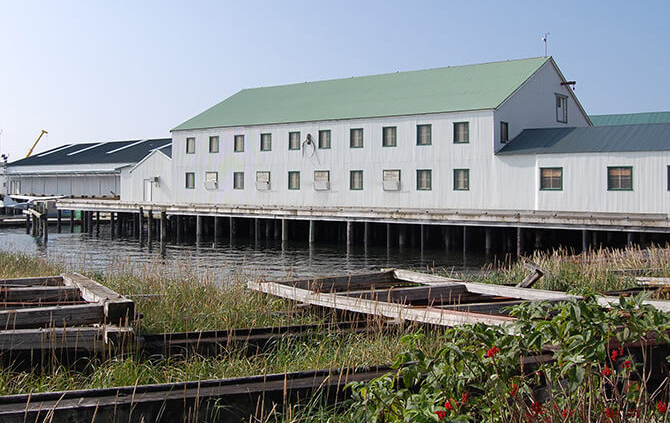
Salmon harvesters at Alitak, located in Lazy Bay on the southern tip of Alaska’s Kodiak Island, are reeling after an announcement from OBI Seafoods that its Alitak facilities would not be buying fish from setnetters or even providing normal services for setnetters during the 2024 season.
The operational costs have become uneconomical due to lower harvests, high tender costs and the cost of providing ice and other services, OBI COO Brian O’Leary announced March 11.
OBI would be open to purchasing Alitak setnet fish only if the fish are taken to Kodiak, O’Leary said.
Maintenance and retail services at the former Lazy Bay cannery at are being halted, the company stated, adding that OBI’s Alitak facility will also not be open for services including ice, laundry, boat labor, garbage and showers.
The fleet was asked to call the office via channel 79 or (907) 771-4800 to schedule visits to the store and access their gear storage and to purchase fuel from seine tenders as they rotate down to the area.
Until this year, OBI Seafoods had maintained operations at eight locations, including Cordova and Kodiak, Alaska. OBI was not available for additional comment.
The Alitak District Setnet Association has been trying to reach a cooperative, interim plan with OBI to avoid a full shut down.
A statement issued by the association noted that while this is another symptom of a salmon and seafood market in steep decline, that OBI’s announcement came just days after the USDA announced it would purchase nearly $70 million in seafood inventory from OBI Seafoods along, plus large purchases from other processors.
Skiff-based setnet operations may be able to purchase fuel from OBI tenders, but not sell fish, pick up ice or receive provisions such as groceries or other tendering services that remote Alaska fishing businesses rely on, Theresa Peterson, an Alitak harvester from Kodiak, said.
Many of the setnet fishing businesses are family operations with a multi-generational history in the fishery. The association said if no market opportunity emerges, there will be additional concerns about how to manage harvestable surplus of salmon headed to Alitac District river systems.
Without an active setnet fleet fishing at typical harvest levels, foregone harvest could lead to over-escapement of salmon, putting additional biological pressure on lakes and river habitats and has the potential to exacerbate fluctuations in returning biomass, according to the association’s statement.
